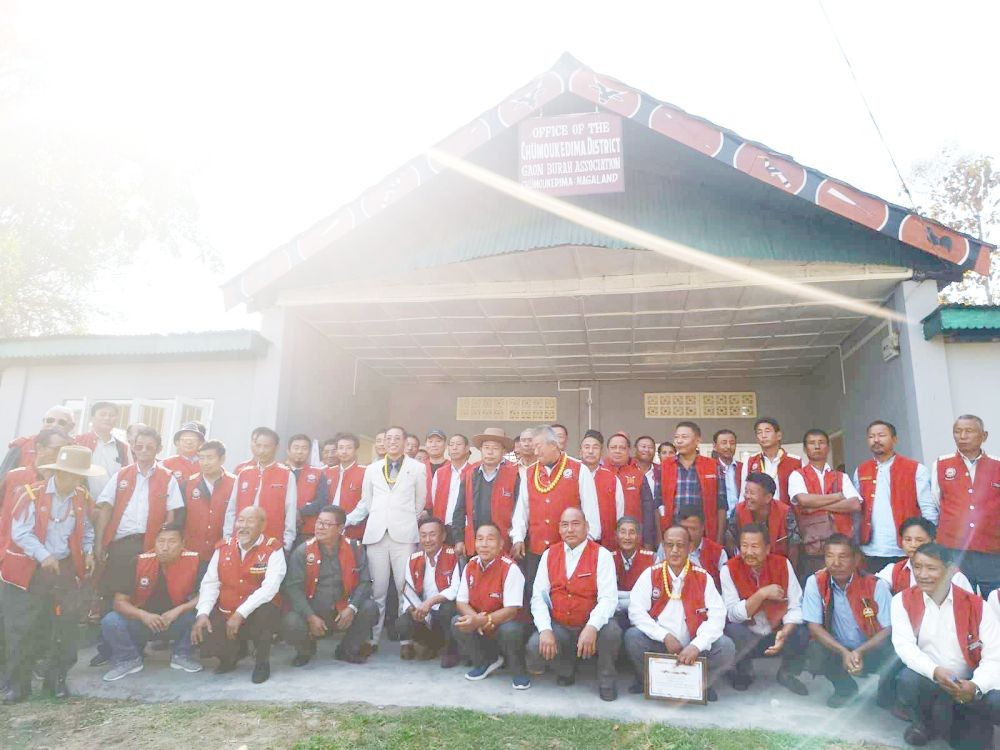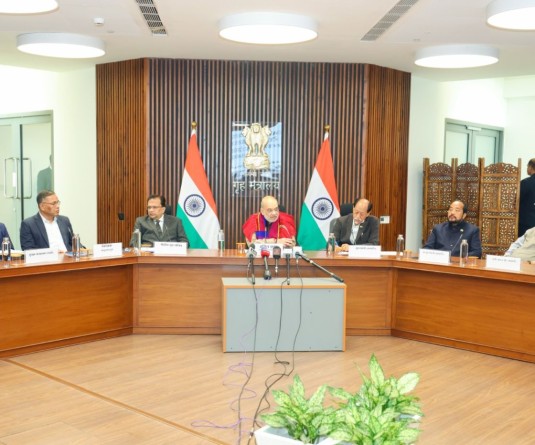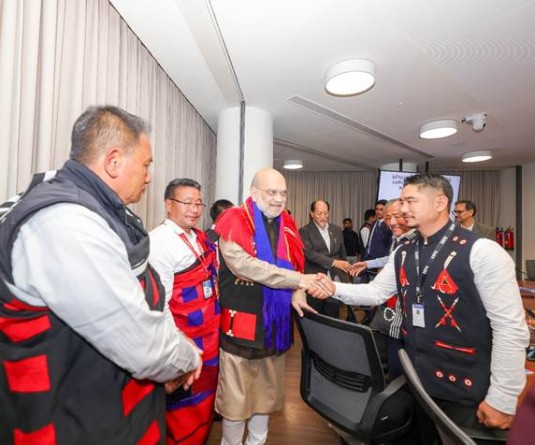Kitoho S Rotokha, JD (U)’s Nagaland unit Secretary General with the Gaonburas of Chümoukedima district during the inauguration of the CDGBA office, in the DC office complex, on January 11. (Morung Photo)

Reshaping, decolonising and giving a strong Naga character
Morung Express News
Dimapur | January 11
The office of the ‘Gaonbura’ (village elder/leader), as a British colonial legacy, continues to be held in high regard in Nagaland. A grassroots emissary of the British colonial administration in essence, this office has gone on to exist in more or less the same shape and role as designed by the British.
It is time that it is reshaped, decolonised and given a strong Naga character, said Kitoho S Rotokha, JD (U)’s Nagaland unit Secretary General. He made the statement at the inauguration programme of the Chümoukedima District GBs Association (CDGBA) office at the Deputy Commissioner’s office complex on January 11.
“Gaonbura reforms should be given serious thought. Given an opportunity, we should introduce reforms by giving the institution a more indigenous shape, identity and a role that adheres to the distinct Naga administrative customs,” he said.
According to him, the Naga society of old was “republic, independent, democratic villages,” wherein chiefs or elders were as good as kings. Albeit all the attached pride and reverence to the institution, he held that it would not be unjustified to ask questions as to why the British introduced it. As opposed to the outward bestowing of reverence, he said that, to the British, it was no more than a master-servant relationship serving the colonial interest. He added that the British, with all the modern reforms they introduced, were largely responsible for the political mess the Nagas are in today.
He said, “I am not saying that the institution should be removed. I am saying it should be reformed in such a way as to suit the traditional role of the village elder or chief and reclaiming the respect it commanded of the people.” He added that the reforms can begin by replacing the nomenclature with a more Naga name and replace the “red cloth/shawl” with one that celebrates the richness and diversity of the traditional Naga weaves.
“I appeal the elders gathered here today to introspect. What should be the role of the Gaonbura? Should it go on as outlined by the British colonial administrators or follow the customs as followed by our forefathers?”
Regarded as custodians of tradition and custom, he said that the institution should also keep pace with the changing times, at the same time, work towards regaining the “lost glory” of the traditional elders/chiefs, with dignity, identity and integrity intact.
As the “bridge” between the people and the government, the office of the gaonbura should not be allowed to be used and manipulated by people with vested interests, he said. According to him, the role of the Gaonbura should be above monetary incentive. “It is understood that the British gave the Gaonbura 12 percent of the house tax collected. This was done on the understanding that they were rendering voluntary service without any fixed remuneration from the government then.”
Meanwhile, he called for making a clear distinction between “rural and urban Gaonburas,” whose roles and functions are different and should not be mixed up. In some Naga communities, the village chief or elder is a hereditary position, in some, it is not.
As an intending candidate in the upcoming Assembly polls, he claimed that the root of corruption is the use of money in elections. According to him, a candidate has to be judged based on the development agenda and not on how much can be spent during the campaigning.
He said that ‘Clean elections’ as imagined would be great if implemented. But he maintained that it is a process and cannot happen overnight. Much as he would wish that elections are contested via fair means, he expressed apprehension that it will be the same this time as well. He said, “I’ll play as per the system played by the others.”
On the Eastern Nagaland People’s Organisation resolution to boycott elections, he said that they should also ask the 20 legislators of the ENPO bloc to resign and forbid them from campaigning.






